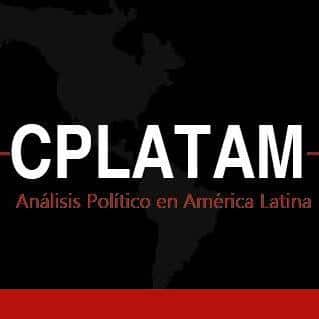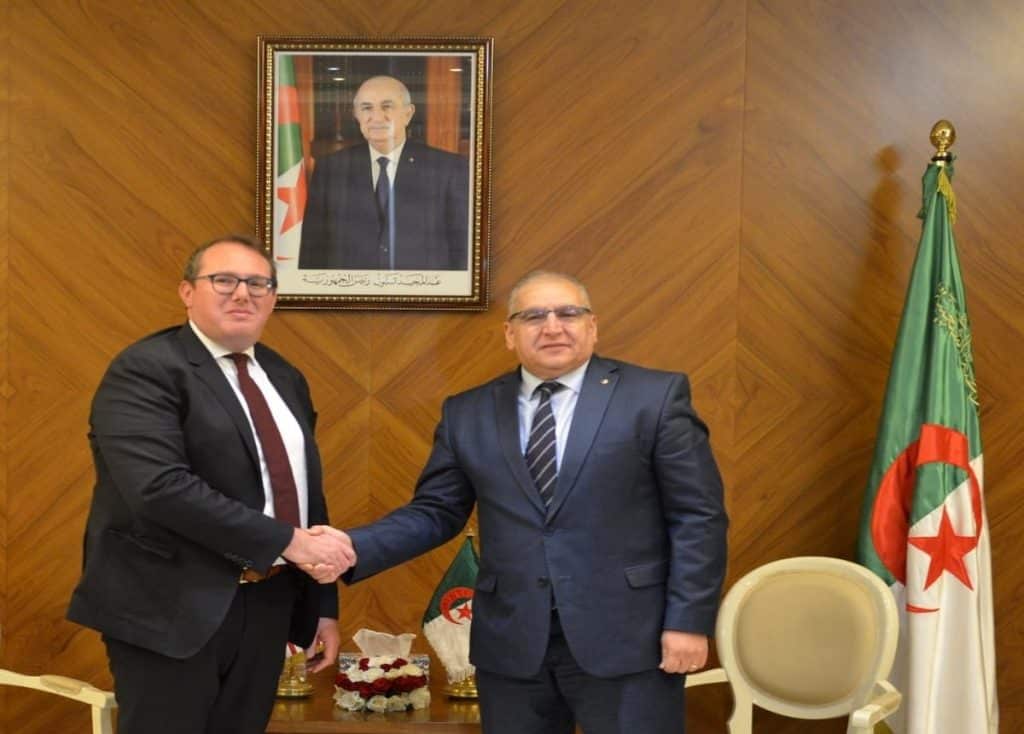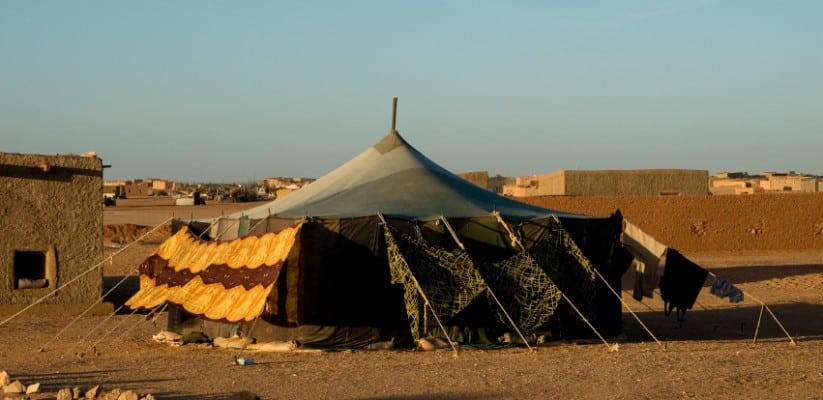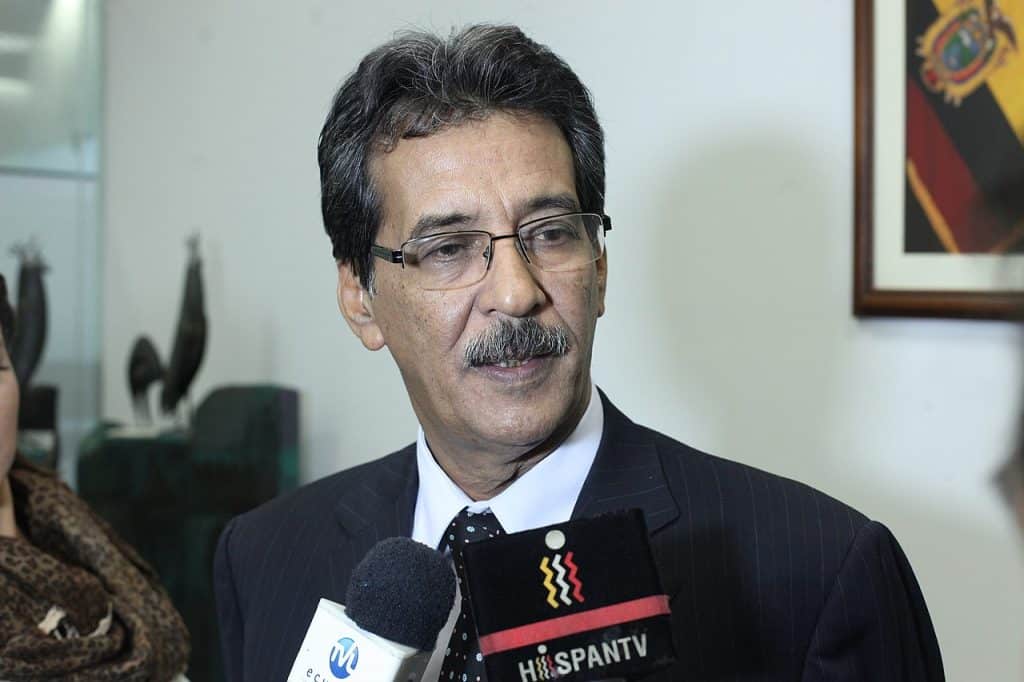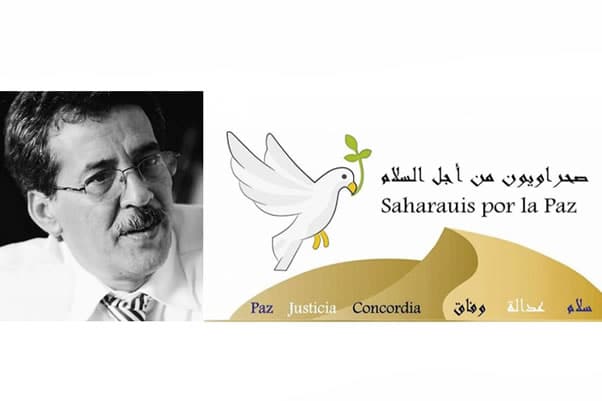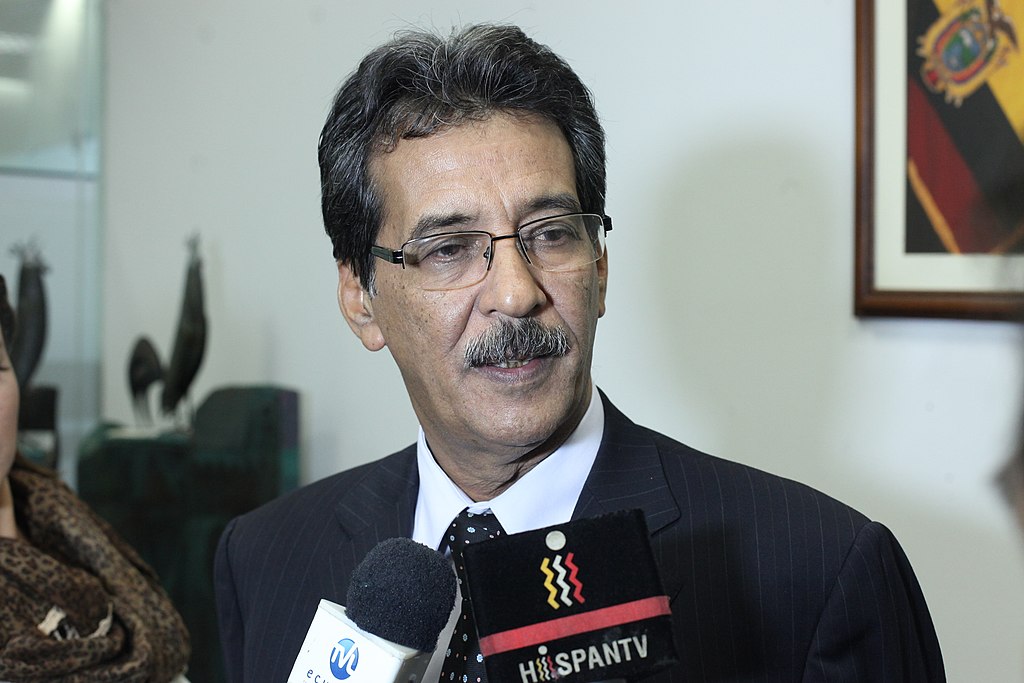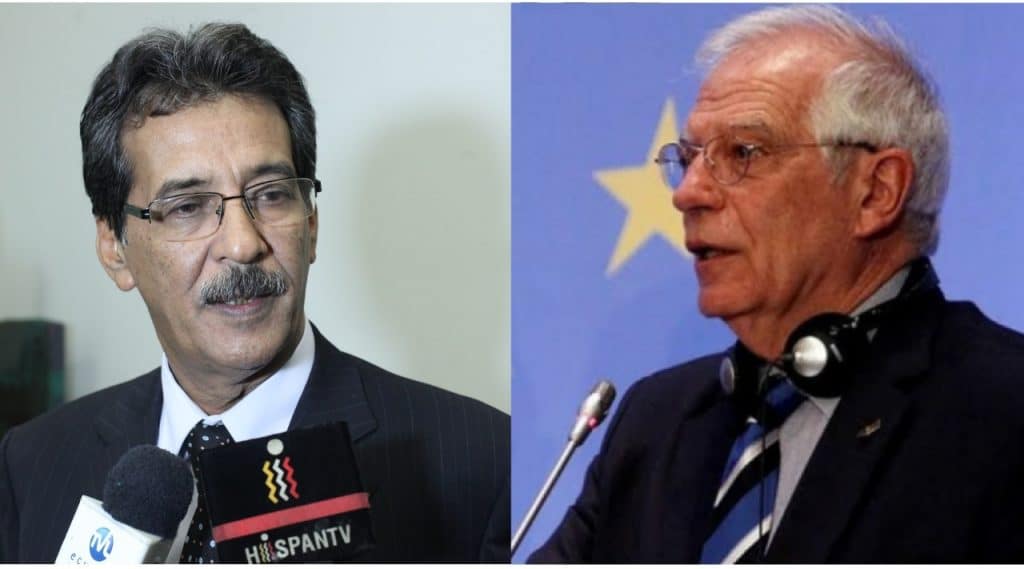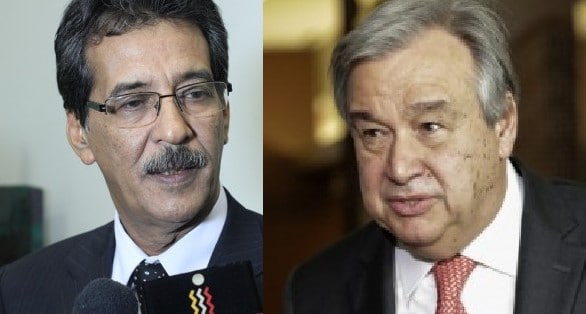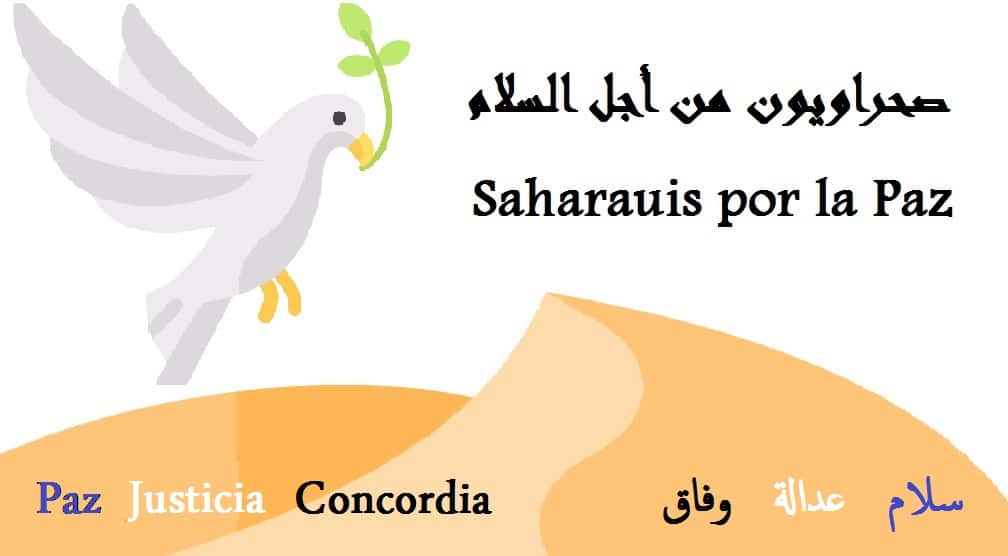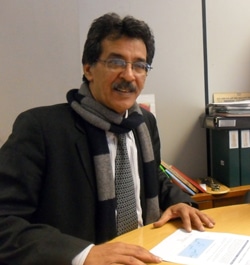Translation of Atalayar

In dialogue with Hach Ahmed Bericalla Clara Riveros
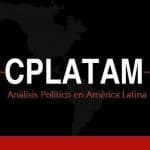
A dissident is one who dissents, who separates himself from a doctrine, a belief or a conduct. An expression of maturity, ethics and individual responsibility? The dissidence of individuals who have been part of revolutionary movements offers various notable examples of this individual transition that implies a break with a totalitarian ideology and the renunciation of combining all forms of struggle. A few weeks ago, a new Saharawi platform came onto the scene, breaking away from the Polisario Front and breaking with this totalitarian model. In its founding communiqué, the Saharawi Movement for Peace (MSP) incorporated words such as political diversity, multipartyism, development, modernity and the 21st century. The use of these terms corroborates the distance that the members of the MSP have taken from the doctrine, beliefs, conduct and practices of the Polisario Front. Time will show if this new platform can also influence the overcoming of this unanimist tribal conception – still present in the Saharawi community – to advance in the construction of a democratic civil society that incorporates in its daily life and in its lexicon the respect for diversity and difference, individuality, the individual and the citizen, individual freedoms and the universality of human rights against the dominant and persistent tendency of group absorption.
Renouncing totalitarianism is not an easy or simple process either. Proof of this is that there are dissidents from the Polisario Front who remain in Algerian territory and who suffer the rigours of the Polisario. They often face harassment, threats and disqualifications, as the MSP stated in a new communiqué. Meanwhile, Polisario militants, activists and sympathisers accuse the dissidents of being “traitors”, thus entrenching their character and absurd claim to embody the only legitimate representation of the population of Western Sahara as a whole. A claim that is certainly unfounded and deliberately ignores the complexity of this dispute. This week we spoke with the first authority of the MSP to inquire into his reading of the territorial controversy of Western Sahara, as well as his memories, life trajectory, dissent from the Polisario and current position within the emerging MSP. The Secretary of the Saharawi Movement for Peace has been saying in recent weeks that it is time to put an end to the myth of the Polisario as the “only” representative of the Saharawis and that “the times of single parties and single thoughts are behind us […] since the last century controversies in politics are settled in calm and respectful debate and at the ballot box”.
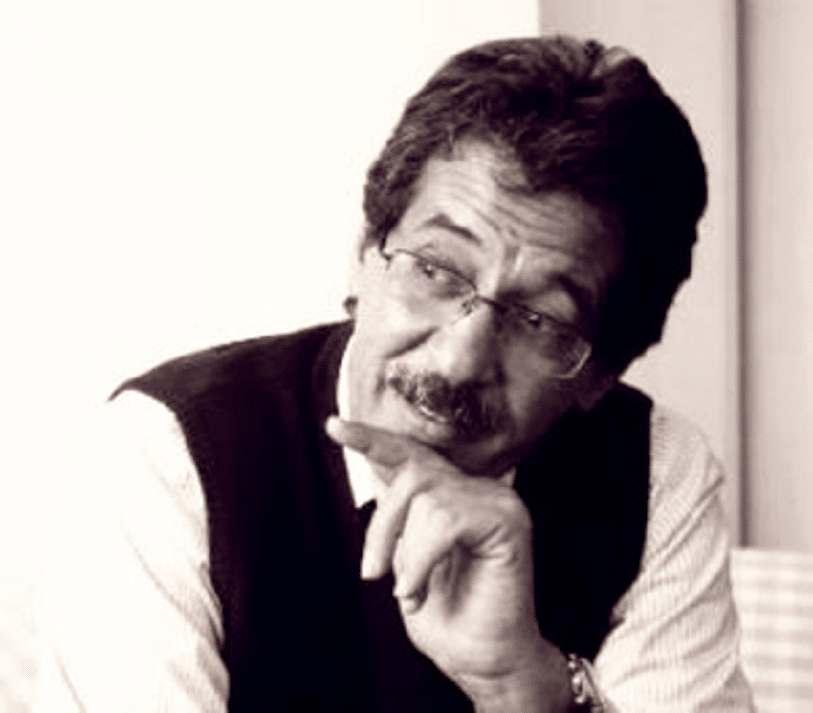
What is your name? Where were you born and where did you grow up?
My name is Hach Ahmed Bericalla. I was born in the city of Dakhla (Ex Villa Cisneros of the Spanish period). I am the youngest of a large family (six boys and one sister). I grew up in that city, although I marched with my family through several towns in the interior (Auserd, Argub, Tichla, etc.,) following the fates of my father who was a member of the Spanish army (Nomads Troops).
Which family and tribe do you belong to?
I belong to the tribe of the Saharawis. It is a very small village, barely the size of a tribe.
How did you spend your childhood and youth?
What I remember most from my childhood are the trips in convoys and the first apprenticeships in schools attached to the installations in the military posts. My youth was spent between Dakhla – where I started secondary school – and Laayoune – where I went to continue my secondary education when my asthma prevented me from going to the south because of the weather. The asthmatic attacks were very intense. The only thing my older brother could think of to help relieve my asthma was to take me urgently into the desert, to a dry climate. Hence my special love for the desert. During the summer holidays, some of my classmates and friends would brag about traveling to Spanish cities, to the beaches, to civilization, and I would brag about my experience in the desert. In the end I convinced my brother Bujari that he was starting his law studies in Tenerife at that time. During the Christmas and summer holidays we would organize more or less long stays in the desert. The tranquillity was cut short in 1975.
So where is your family?
My family, except for my older brother, is all in the Tindouf camps. I buried my parents and three of my brothers there.
You are one of the founders of the Polisario Front? How, when and why did you join?
No, I am not a founder of the Polisario at all, far from it. My first contacts with revolutionary ideas date from my time as a high school student in Dakhla city. It was a generation that had just realized that rebellion with or without a cause was the fashion. In my case and that of many comrades we embraced the revolutionary cause of the Polisario. Even when we missed classes and fought with the Spanish teachers, we counted them as revolutionary acts. We stopped frequenting the discos and “guateques” and dedicated ourselves to a unique night activity: painting the walls with slogans against the Spanish colonial presence and in favor of the Polisario.
Why did you join the Polisario Front? What can you say about your membership, background and later dissidence in that movement?
I joined this process like most of the Sahrawis when Spain left the territory and many people went into exile in Algeria. My whole family, except for one brother, settled in the refugee camps. After training periods, I went to work in the information department at the end of 1978. In 1985 I joined the foreign service. At the end of 1986, I took charge of relations with Spain. I remained in the diplomatic service until the end of 2011, when I took over the cooperation portfolio for six months before resigning. I then returned to my previous job until 2015 when my estrangement from the Polisario leadership began following a letter I published on the occasion of the 14th Congress. In 2017, together with a group of civilian and military cadres, we formed the Sahrawi Initiative for Change as an internal political current. After the 15th Congress, held in December 2019, seeing that any attempt to change from within was impossible, we began a process of reflection and debate that culminated in the constitution of the Saharawi Movement for Peace, on last April 22nd.
What were your motivations for taking up the revolutionary struggle and what were your motivations for giving up that path?
There is little I could reveal except the fact that I, like many Saharawis, have poured all my energy into this struggle to which I have devoted myself body and soul. My disappointment was monumental when I discovered that all that glitters is not gold. I realized that when I, from my activities abroad, was striving to collect aid for the refugees, some Polisario Front cadres and leaders were profiting, buying or building mansions and allowing themselves a lifestyle and privileges that had nothing to do with the way of life of a guerrilla. I saw how the best careers, especially the very profitable ones in medicine, were shared out among the sons and daughters of the political leadership and those close to them, as their families lived abroad or in bubbles far away from the refugees.
The last straw came when I discovered, a little over a year ago, the horrors of the secret prisons of the Polisario through the testimonies of survivors of that hell. I was curious to speak directly with them and to contrast the consistency and veracity of the testimonies.
How is it possible that the members of the Polisario are not aware of what is happening in the Algerian camps run by the Polisario? Many dissidents have told painful and terrifying stories of the cruelty perpetrated by the leadership of the movement that promised them liberation and that has actually subjected that population to great suffering and hardship?
All the horrors, which are not few, were installed in my mind as a fact that surpasses all fiction: the case of little Safia, a girl between 9 and 13 years old, according to the testimony, is a horror story that cannot be told to the public, not even during adult hours.
Another case that struck me was that of two brothers, childhood friends with whom we played football during my sporadic stays in Auserd, one of my father’s destinies. They are Kbiri and Alali. They were the sons of a man who reminded me, through his similarities, of the king of the Spanish deck. He stood out for his traditional dress and his “nila” turban, a fabric that dyes the skin blue. His name was Ahmedu Uld Aleya. I still have in mind this great gentleman whose personality could be summed up in concepts such as elegance, patience and wisdom. Ever since I saw a chapter in The Lord of the Rings saga I have associated him with the character of “Gandalf”. I remember him talking and having tea with my father. Well, these two brothers, contrary to what I thought, did not emigrate to Mauritania. They decided to go, like everyone else, with their people into exile and joined the ranks of the Polisario as combatants. Major Kbiri was arrested in the military zones, on a date that we were able to specify, on the suspicion of being “infiltrator” or “enemy”. He remained for years in Rashid prison without anyone knowing about him, not even his younger brother. Friends thought he had died in some combat.
Years later, the youngest brother, Alali, who became a combatant at a very young age, was also arrested on the same suspicion while he was in the camps healing from a war wound. The two brothers, it was learned, were reunited in prison. The older brother died there shortly after the re-encounter, as a result of torture and ill-treatment. The younger one was released years later, thanks to the 1988 uprising, with physical and psychological stigmas that finally ended his life. He was buried with the marks of the Polisario on his back stamped with hot iron. I discovered that my childhood friends, whom I had never seen since we grew up, were arrested simply for belonging to a “foreign” tribe, according to the ethnic catalogues in force at the Polisario.
Another case that affected me in a very special way was that of two fantastic co-workers. Abdelaziz Heidala and Mohamed Musa uld Chaga el Mojtar. The first one was very joking and playful. I remember him because of the thick lenses of his glasses. The other boy was an example of serenity and education. You could hardly hear his voice when he spoke and he was always smiling. We were working together for several months and suddenly they left, in theory, to fulfill a “mission”. It was finally discovered that they were on the list of those killed in Rashid’s prison. Sometimes I can imagine the pain they must have suffered, especially Mohamed Musa, a small-bodied boy, without muscles and apparently fragile. All these facts and revelations have marked me. They made me change substantially my commitment to the Polisario. The fact that the perpetrators of such crimes remain in power, enjoying total impunity, made me lose all hope for possible changes.
Little is known about the question of Western Sahara in Latin America and Spanish society seems to have successfully installed the Polisario Front’s version, but little or nothing is said about all this that you have described…
I think that Spain, because of its historical links with the Saharawis and Latin America, because of its cultural links, should devote itself more to saving the Saharawis and helping them to get out of the tunnel.
How do you explain the length of this controversy over such a long period?
It is certainly a problem that has been going on for a long time. It has long since become a forgotten, low-intensity conflict of little concern to the international community. Maintaining the status quo is deadly for the Sahrawi people. There is no problem like this that matters so little to world public opinion today. And those who have suffered and continue to suffer most are the civilians, women and children, who have been living in refugee camps and in a desert where life is almost impossible for them for half a century. It is worth fighting to finally change the fate of our people.
I understand that you and dozens of Saharawis today are promoting a peaceful struggle from the emerging platform of the Saharawi Movement for Peace (MSP). It would seem that in the declaration of principles and intentions you set out your opposition to all forms of dictatorship. Is that so?
It is the beginning of a new path and a moderate and balanced political proposal that aims to shake the board and generate expectations and hopes among the Sahrawis for an honorable way out that will end this long ordeal. More than the break with the dictatorship and the confrontation with the Polisario leadership, we have decided to launch an initiative based on common sense and a single concern: to get our people out of the black hole. It is desirable that the Polisario, as it should be, begins to get used to coexisting with other ideas and different political currents and, instead of entrenching itself in unsustainable positions, accompanies us in the search for peace and tranquility for our people. May we all begin to deploy our efforts towards the reconstruction and well-being of our people and not in the construction of more trenches and fortifications.
What position do you hold in the MSP?
I coordinate a consultant under the position of First Secretary until the Congress that will take place in no more than 23 months. This is a transitional stage in which the effort consists of implementing the Movement among the population and making it known abroad.
What was the determining factor that encouraged you to create the MSP?
The proposal arose after losing all hope in terms of the possibility of influencing from within the ranks of the Polisario. We wanted to believe that the Polisario was more than a single political party and an authoritarian leadership, but we had no choice but to resign ourselves and assume reality as it was. After three years of trying to organize and act from within, we realized that it was an impossible mission, especially after the repression and persecution of the three activists of the Sahrawi Initiative for Change. The 15th Congress of the Polisario was the final straw.
Why can the MSP be that necessary and democratic alternative in opposition to the Polisario Front?
First of all, because it is a product of the mistakes of the Polisario. And secondly, because it brought together many indigenous cadres who had already had long careers in military and civilian activities. It was concluded that it was necessary to stop the journey to nowhere that the Polisario is leading and to seek an honorable and dignified way out for our people. It is a rebellion against the harmful effects of an extreme nationalism that no longer has a place in our world and that in the case of a small town like ours can cause its extinction pure and simple. The leaderships cannot lead their peoples from bubbles out of which they see reality from a distance. They cannot permanently hide behind a theoretical political discourse, adopt samurai codes and be insensitive to the pain and hardships of their people. They must have the ability and courage to recognize their own mistakes, to speak truthfully to their people in order to save what is still possible.
Why can the MSP be that third actor to – be taken into account in the negotiations and in the round tables that they promote – a negotiated and consensual solution with a viable and realistic perspective that puts an end to the territorial dispute in Western Sahara and to the suffering of the population that – in some cases voluntarily and in others retained – remains in the Polisario camps in Algerian territory?
Because we see a wide empty space between the positions known so far. We believe that there is sufficient room for an intermediate proposal or a compromise formula that the parties do not dare to address for fear of breaking the “infinite tie”. From our new postulates and approaches we want to give consistency to what is beginning to be known as a moderate, sensible and coexisting nationalism. I believe that the keys to the settlement lie in this type of proposal.
You informed that the MSP is composed of more than 100 people, cadres, ex-officials, former high officials of the Polisario who, it is inferred, enjoy visibility and credibility with the Saharawi population, in Western Sahara, but also in Tindouf: Is it probable that in a reasonable time they will add decisive support even among the most reticent Saharawis?
In the three weeks that the Movement has been in existence, the number of members has already tripled. The most striking thing is that the majority are young people, students or university graduates.
How are they going to stand up to the attacks of the Polisario Front, as well as those of its allies and promoters in Africa and Latin America (Algeria, South Africa, Cuba, Venezuela) who will seek to undermine them when you try to persuade the International Community, the international media, the United Nations, African Unity and the Security Council?
We are already at the centre of a major offensive. The reaction has been brutal. In fact, a very intense campaign has been unleashed. Manipulation, disinformation and defamation on social networks have been the order of the day. However, the friends of the Polisario cannot ignore that this is an internal debate that should be respected, just as they demand it for themselves. Regardless of the confrontations in the media, what matters to us is to get our people out of the tunnel, to provide them with a period of peace, tranquility, well-being and dignity. The rest is incidental and will pass like a summer storm. We will knock on every door. We have already sent letters to the UN Secretary General and to the countries concerned such as Morocco, Algeria, and Mauritania. We will also send to the leadership of the Polisario to call for coexistence and respect as elements of the same political spectrum in a democratic society.
What happened and what went wrong with the Saharawi Initiative for Change that was driving the Saharawi dissidence in recent years and what will prevent something similar from happening with the MSP?
The only thing that happened is that most of us realized, although for some it was not a surprise, that it was impossible to change from within an authoritarian political party, anchored even in the ideological environments prior to the fall of the Berlin Wall. They closed all the doors whose keys were in the hands of the leadership and we went to open another one out of their reach, that of democracy. We have simply created a different political party and this is as correct as it is normal in a democratic society. The Polisario wants to continue imitating North Korea in the 21st century.
A Chilean citizen commented on social networks that the MSP is being formalized two years after the reestablishment of Cuba’s relations with Morocco while interpreting that the majority of the signatories of the MSP have deep respect and admiration for the Cuban regime. The relationship between events and actors raised by the Internet user exceeds my understanding. Does Cuba have something to do with the emergence of the MSP? Would Cuba, an emblematic totalitarian regime, be the political model that the MSP considers to emulate?
It has nothing to do with the emergence of the MSP. As for the political model, we have not yet defined the political and ideological guidelines of the Movement. There is a commission that is working and preparing drafts for the Congress. Personally, I am inclined towards the already experienced models of moderate nationalism and the ideas of its most outstanding figures, Basque leaders such as the late Xavier Arzallus or Juan Mary Bandrés, whom I have known personally, or the Kurdish Masoud Barazani.
Interview link

